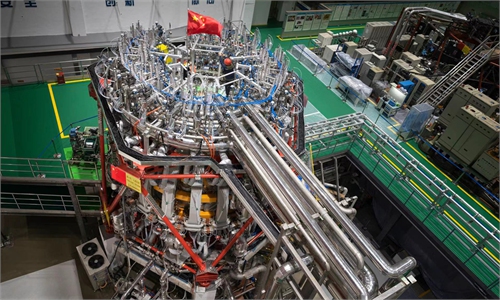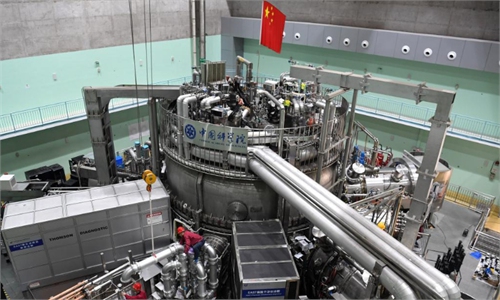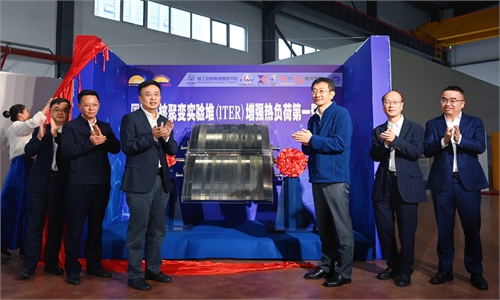Nio’s investment in nuclear fusion technology may need decades to bear fruit: expert
Chinese electric vehicle maker Nio’s investment in a nuclear fusion startup may not bear fruit any time soon, an industry expert said, noting the technology may need decades of time before it matures and be commercialized.
Nio has invested in a startup that is developing fusion technologies, according to a Reuters report. The newly established company, Neo Fusion, will research and develop technologies that aim to bring controlled fusion for commercial uses globally in two decades, the source said.
In response to the report, Nio told the Global Times on Sunday that it aims to facilitate the R&D and commercialization of nuclear fusion technology by making financial investment into this project. It wants to make a positive impact on the long-term development of sustainable energy and enhance its industry influence.
The project will involve multiple stages of funding, including contributions from Nio Group and Nio Capital. Additionally, Nio plans to attract more strategic investors to participate and jointly promote the long-term development of the technology, the firm said.
Unlike fossil fuel such as coal, oil and natural gas, which will run out and pose a threat to environment, raw materials required for the "artificial sun" are almost unlimited on earth. Therefore, fusion energy is considered the ideal "ultimate energy" for the future of humanity.
Nevertheless, nuclear fusion is still confined to the laboratory at the moment and primarily led by governments, since it requires significant investments.
In terms of commercialization, it is a long way, perhaps at least several decades, before the technology becomes mature, Lin Boqiang, director of the China Center for Energy Economics Research at Xiamen University, told the Global Times on Sunday.
With registered capital of 5 billion yuan ($723.4 million), Neo Fusion is 50 percent controlled by government-owned energy companies and investment subsidiaries in East China’s Anhui Province and, according to the financial details in the company registration filing seen by Reuters.
Among them, Nio invested 995 million yuan for a 19.9 percent stake, while Nio Capital, the investment firm founded by Nio's chief executive William Li, invested 505 million yuan for a 10.1 percent share, it showed.
The investment seems “relatively small,” Lin said, nonetheless, more investments on the technology are crucial for exploring the boundaries of scientific knowledge and accelerating the development of the potentially transformative energy source.
Observers pointed out that while Nio's investment in a fusion nuclear startup may demonstrate their long-term vision, it is important to temper expectations, since fusion energy is a complex scientific and engineering challenge.
Currently, scientists and engineers worldwide are working on different approaches to achieve controlled fusion, such as magnetic confinement fusion (MCF) and inertial confinement fusion (ICF). Prominent fusion projects like ITER (International Thermonuclear Experimental Reactor) are aiming to demonstrate the feasibility of fusion as a practical energy source.
China's "artificial sun," the Experimental Advanced Superconducting Tokamak (EAST), which is also the world's first fully superconducting tokamak device in operation, saw a major breakthrough last month.
EAST achieved a high power, stable, 403-second steady-state long-pulse high confinement mode plasma operation, setting a new world record for steady-state high confinement mode operation of a tokamak device, China Central Television reported on April 13.
Global Times



